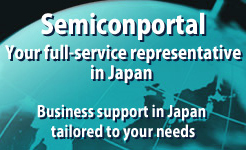Blog: Hydrogen energy will create big business opportunities
The hydrogen energy era is on the way. Toyota has announced it may commercialize hydrogen-powered fuel cell vehicles (FCVs) next year and has set itself the target of cutting the cost per vehicle to 5 million yen (US$50,000*)—one-twentieth of the current cost. Likewise, Honda plans to introduce FCVs next year. Nissan is targeting introduction in 2017, slightly behind its competitors.
*Original figures are in Japanese yen. The exchange rate is roughly US$1=100 yen.
To encourage take-up of FCVs, it is essential to rapidly construct a network of hydrogen stations. The Japanese government has set a target of 1,000 hydrogen stations by 2030, but so far construction of only 41 stations is planned.
That is too slow for Toyota, which has announced it will build hydrogen stations by itself. In addition, JX Nippon Oil & Energy, the largest petroleum products company in Japan, has decided to build 100 stations by 2018, prompted by what it views as the big potential of FCVs.
Lowering the cost of construction is the key to rolling out a nationwide network of hydrogen stations. Whereas the cost per station is about 100-200 million yen overseas, the figure is 500 million yen in Japan.
There will be about 3,000 hydrogen stations worldwide in 2025, according to Deloitte Tohmatsu, and roughly 60% of them will be in the U.S.
When people talk about the nascent hydrogen economy, FCVs usually get most of the attention, but electric power generation is another major application, not least in Japan. With the nation's nuclear power stations shut since the Fukushima disaster of March 2011, Japan has relied on rising imports of natural gas, but this has led to mounting trade deficits. Everyone loves renewables but they don't seem capable of compensating for the lost capacity any time soon.
Hence the growing interest in using hydrogen, which is increasingly viewed in Japan as an attractive candidate for generating lots of electricity. Power generation by combustion of a natural gas-hydrogen mix is already in practical use. Pure hydrogen combustion is under development for future power generation. Kawasaki City and Chiyoda Corp. are jointly planning to establish hydrogen networks and build commercial hydrogen power stations.
Chiyoda Corp. and JX Nippon Oil& Energy are not alone. Other companies eager to get hydrogen-based energy infrastructure up and running include Hitachi Zosen, Osaka Gas, Toho Gas, Taiyo Nippon Sanso, Iwatani, Idemitsu Kosan, Kobe Steel, Kawasaki Heavy Industries, and Mitsubishi Kakoki. Others are expected to join the hydrogen bandwagon.
Some local governments have come up with practical plans for the utilization of hydrogen energy. Fukuoka Prefecture held a conference on hydrogen energy and has launched the Kitakyushu Hydrogen Town project. Meanwhile, Miyako City in Miyagi Prefecture is working on the practical use of hydrogen generation from biomass.
Construction plans for hydrogen stations are concentrated in major conurbations and Aichi Prefecture, home to Toyota's headquarters, with little happening elsewhere. For wider deployment of hydrogen stations, easy-to-install, small-scale stations costing 100-200 million yen are urgently needed. Such facilities will require not only construction engineering working but also innovative application of semiconductors and electronic components.
Hydrogen energy promises to create big business opportunities for Japanese companies in three major application fields: FCVs, hydrogen stations and hydrogen power generation.
Contributed by Wataru Izumiya, President, Sangyo Times, Inc., the publisher of The Semiconductor Industry News.
Translation by SemiconPortal-EmergingTech from Japan














